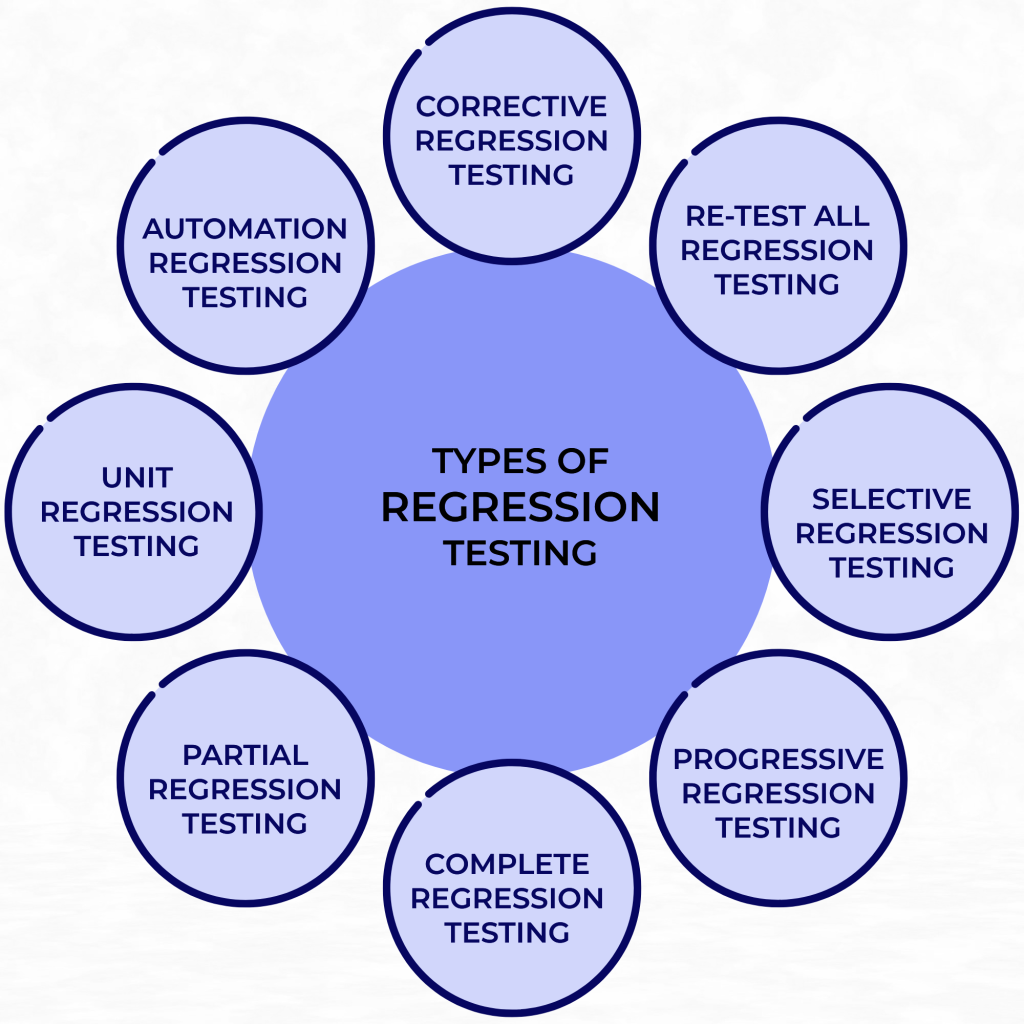Regression Testing

Regression testing is a reliable way to guarantee applications maintain their error-free performance after being frequently modified. Our testing strategy minimizes disruption and keeps costs for quality assurance low. The software industry is rapidly advancing, so the success of any program or application depends on regular upgrades and enhancements. This type of testing ensures that no new updates have caused current features to become impaired, whilst pointing out any glitches in the latest release and verifying earlier issues have been solved.
Regression testing is an essential part of the software development process and should not be neglected. Taking the time to re-run tests after making changes to the code can save a lot of time and headache in the long run.
There are many benefits to performing regression testing, including:
- Ensures quality
- Improves efficiency
- Reduces risk
- Facilitates change
Our approach
Regression testing is software testing that checks for bugs or issues that may have been introduced into the system after changes or updates have been made. There are several types of regression testing, including Corrective Regression testing, Retest-all Regression testing, Selective Regression testing, Progressive Regression testing, Complete Regression, Partial Regression, Unit Regression, and Automated Regression Testing.
Corrective Regression testing uses a subset of existing test cases to minimize costs and efforts needed for testing.
Retest-all Regression testing reuses all tests but may require more time and cost.
Selective Regression testing uses a subset of the existing test cases to reduce time and cost.
Progressive Regression testing is used when the specifications are modified and new test cases must be created.
Complete Regression is done when changes are made on several modules and the impact is uncertain.
Partial Regression is done to verify that the code works fine when changes are made in the code.
Unit Regression is done during the Unit Testing phase and code is tested in isolation.
Automated Regression Testing is a software testing technique that utilizes computer-based tools and techniques in testing software after it has been changed or updated.
Ensuring Stability and Reliability for Your Software
Regression testing is a process of evaluating the functionality of a software application after changes or updates have been made to it. Several different types of regression testing can be used, including corrective regression testing, retest-all regression testing, selective regression testing, progressive regression testing, complete regression, partial regression, unit regression, and automated regression testing.
Why DragonFlyTest
- Risk analysis and prioritization
- Create a test plan
- Establishing a Proper Test Environment
- Identifying Test Cases for Software Regression Testing
- Execute the test plan
- Retest affected areas after fixes
- Continuous monitoring and evaluation
- Automating regression tests can save a lot of time and effort
- Prioritizing which tests to run
- Keep your regression test suite up-to-date
- Designing Appropriate Test Scenarios
- Utilizing Error Logs and Debugging Tools
- Verification of Desired Results
From Our Blog Posts

Common Testing Tips and Hacks
Table of Contents TESTING HACKS TESTING HACK # TESTING HACK DESCRIPTION TOOLS TEST HACK STEPS TH_1 To prove that login credentials are stored in browser

Testing Team Growth Path and Core Values and Job Descriptions
Table of Contents CAREER GROWTH PATH-SOFTWARE TESTING QA TEAM ROLES & RESPONSIBILITIES-BE LIKE TESTING SPECIALIST [AUTOMATION TESTING] ROLES & RESPONSIBILITIES: Successful Candidate will join a

Testing Team Career Path and QA Core Values
Table of Contents CAREER GROWTH PATH-SOFTWARE TESTING QA CORE VALUES & RESPONSIBILITIES-BE LIKE Sr/ Test Manager Report to Practice Head – Testing of all QA

